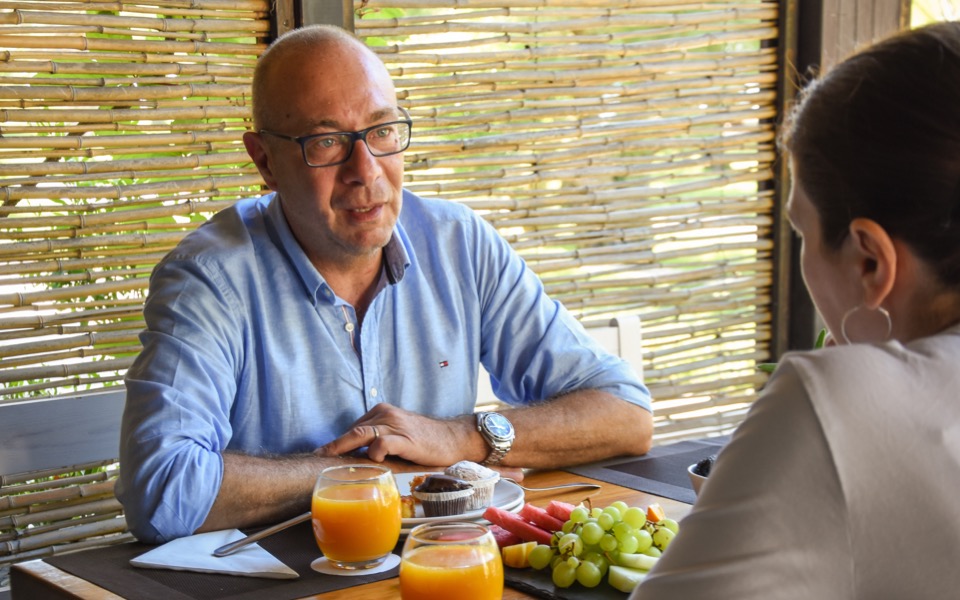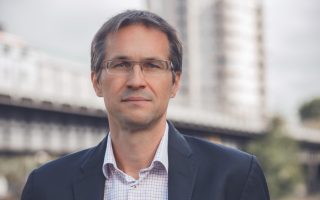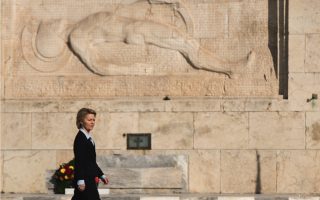Eastern Samos mayor warns of tinderbox conditions as migrant inflows keep growing

On November 1, 2015, the Samos Divers Club was called in by the local coast guard to help with a vessel in distress off the northeastern coast of the eastern Aegean island. The club sent four divers to the location where the Turkish-flagged Kusadasi Ilgun, carrying refugees and migrants, had gone down just 40 meters from land. They dove down to 6 meters and discovered the bodies of four women and six children who had drowned after becoming trapped in the cabin.
“It was a new and shocking experience for us all. It tested our limits; both in terms of our skills as divers but also our emotional resilience. But it also gave us a sense of unity and determination. We swore that we would be there next time to bring the people to safety. Next time we’d save people, not retrieve their bodies,” says Giorgos Stantzos, one of the four divers.
That operation was the first of more than 200 the club has helped with. “They were all carried out in cooperation with the coast guard. We never acted alone,” says Stantzos.
“We bought new equipment on our own, created a search and rescue team, and have stayed under the radar… All of our operations are recorded on video… Only the judicial authorities have the right to ask for it if the need arises,” he adds.
Stantzos now finds himself dealing with the refugee crisis again, only this time as the new mayor of Eastern Samos.
Stantzos was elected just as migrant arrivals from Turkey were starting to rise to alarming levels again. Saying he’s worried is putting it mildly. “Especially after the recent events at Moria, I won’t lie – I can’t sleep at night,” he says, referring to a recent deadly fire and riot at the notoriously overcrowded migrant and refugee camp on the island of Lesvos.
“I get on my motorcycle and ride around, checking out the situation. Samos’ capital is the only place in Greece where there is almost the same number of migrants as permanent residents, at more than 6,000 and 7,000 respectively. And dozens of new asylum seekers come every day. Every so often, we get break-ins at homes and hotels, which are basically stripped completely, including of their doors and roof tiles. That’s hardly surprising given that more than half of the refugees and migrants are living in light summer tents,” says the new mayor.
“If the government makes the mistake of relieving the pressure only at Moria and not on Samos, I fear the worst. I recently called a meeting with the police authorities to discuss our response to a possible riot. I won’t mince words: We can’t deal with it. I’m terrified of a spark setting the whole thing off,” says Stantzos.
The new mayor is calling on his counterparts in other parts of the country to share the burden, to “demonstrate their solidarity with the islands of the eastern Aegean.” The migrant crisis, he says, is a “national issue with a major local impact.”
“We’re trying to find a balance between our humanity and the enormous problems we face,” Stantzos says of Samos. “Despite the difficulties that they face on a daily basis, the Samiots are incredibly tolerant. How could they not be when we are an island of refugees? How can we turn our backs on people who come here completely exhausted, after such a painful journey, driven by the expectation of a better life for themselves and their children? But the problem has become bigger than us.”
Apart from their numbers, the makeup of the new arrivals has also changed, causing greater disparities, says Stantzos. “Inflows from war zones like Syria have diminished. Among those who are registered at the reception and processing center (which was built for 700 people), some 30 percent are from Afghanistan and the rest are mainly from sub-Saharan Africa,” he says.
It’s an explosive mix, says Stantzos, appealing to the government for meaningful support that will help ease the numbers and give the local economy a much-needed boost. “We don’t want handouts; we need a coordinated strategy,” he says.






